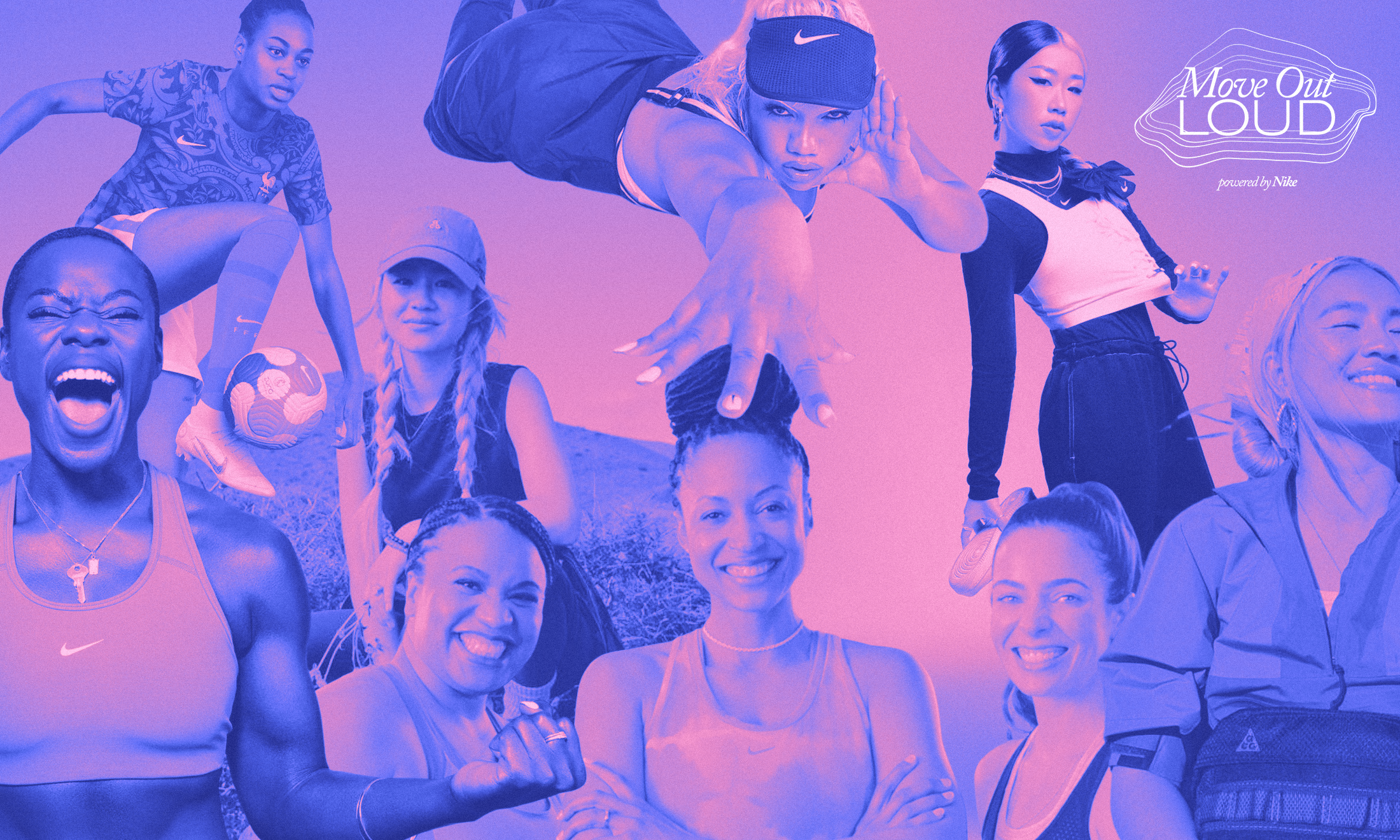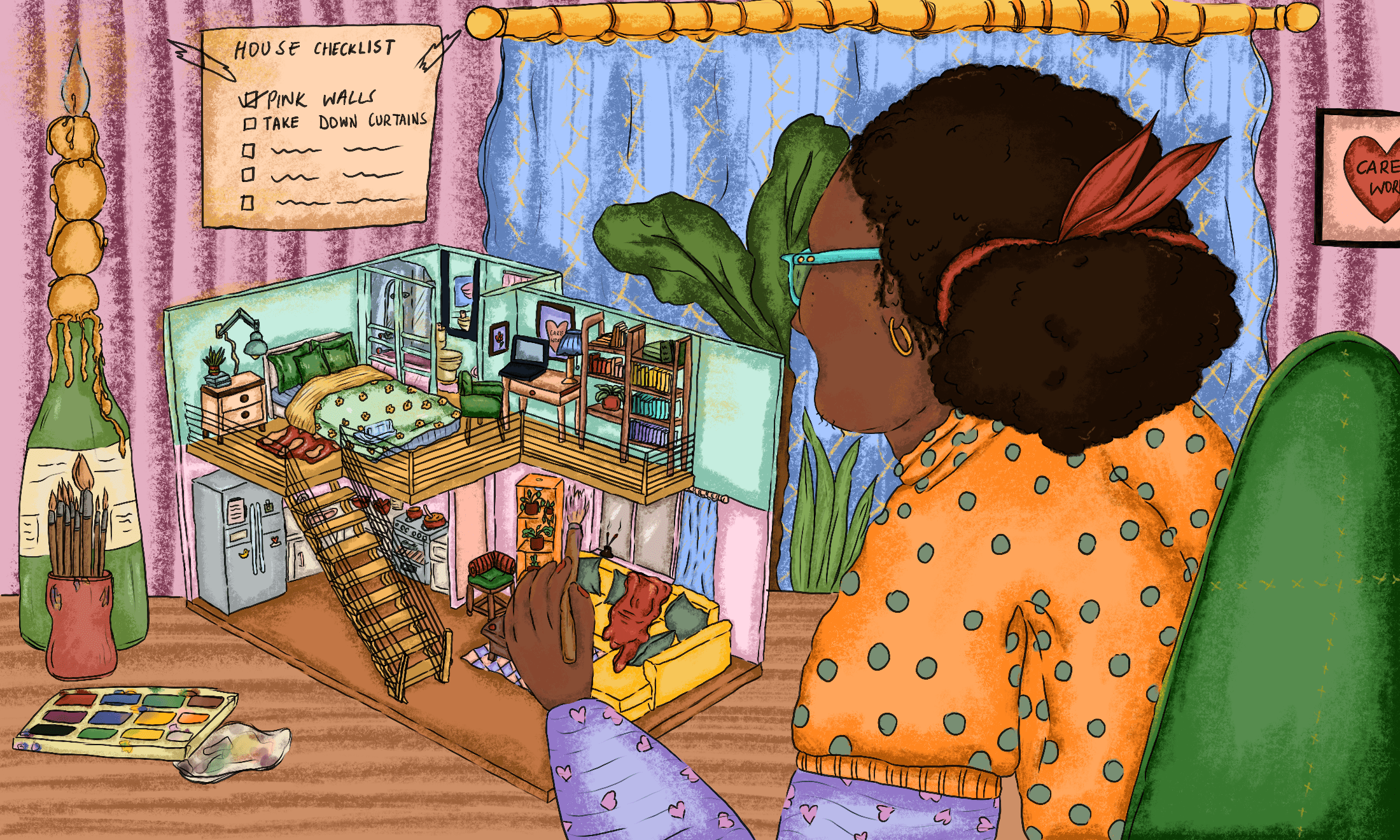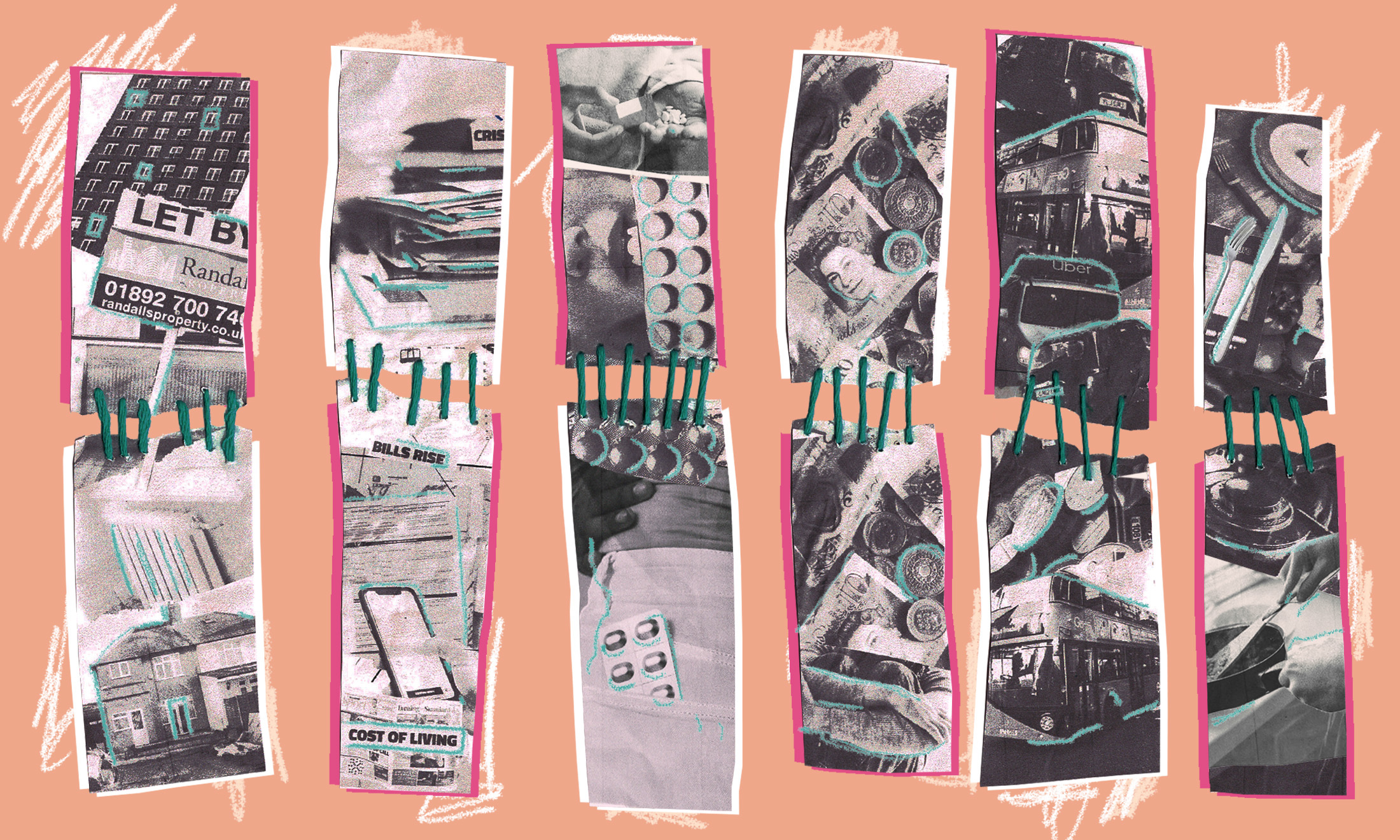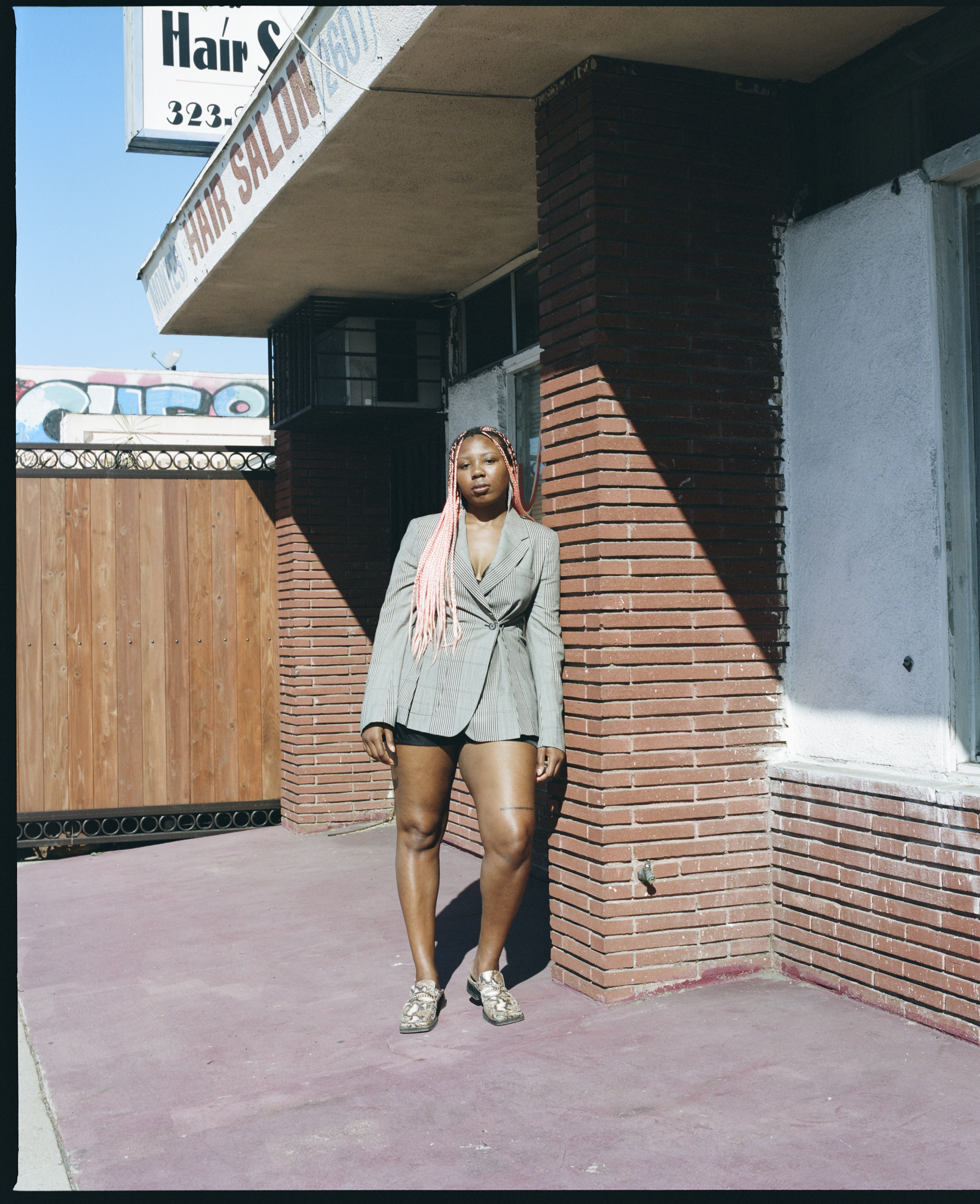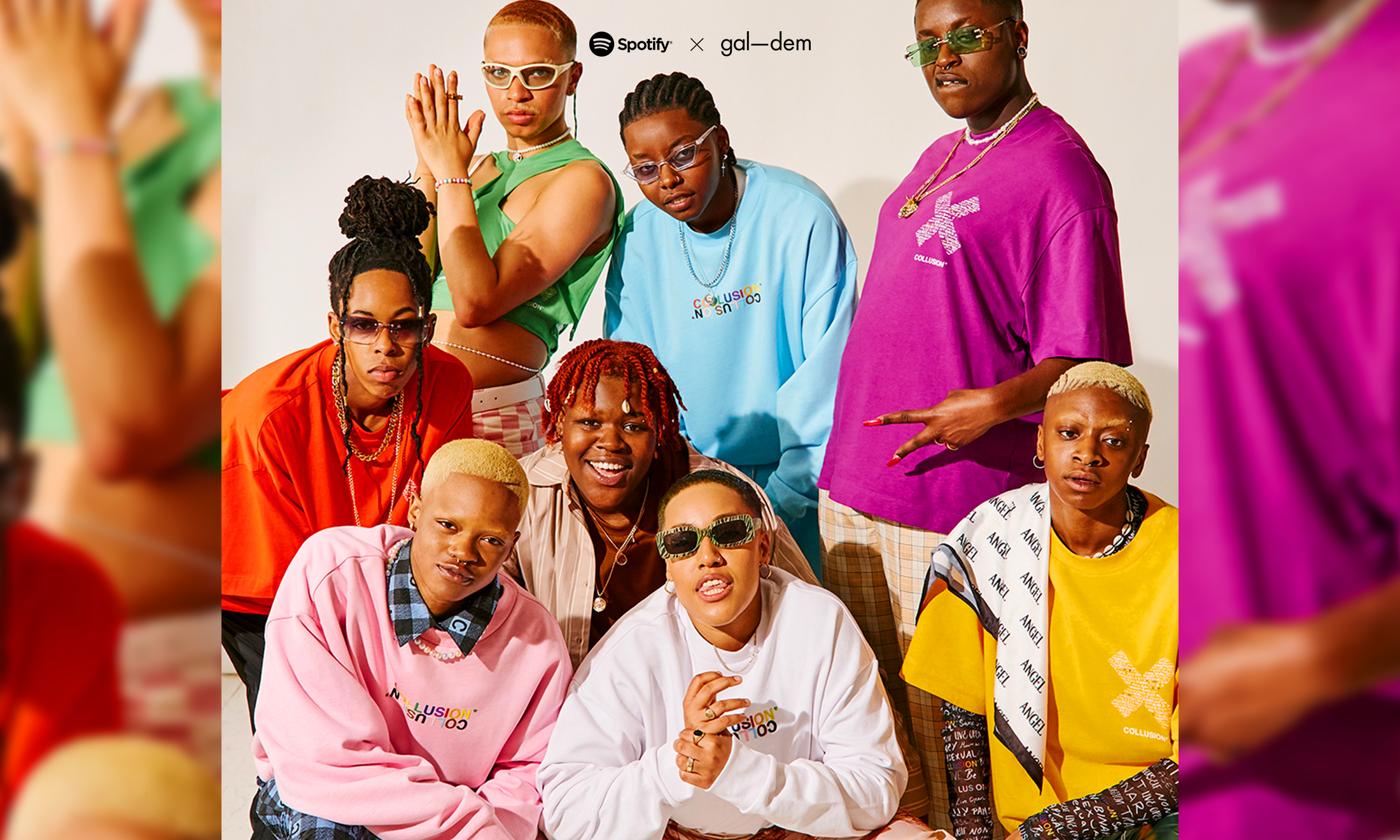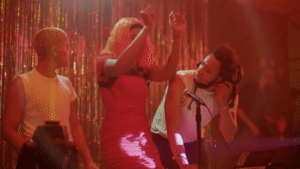
Claudia and Chanti in conversation: navigating self-pleasure in the disability spectrum
The founders of Able Zine and Sew sit down to discuss sex and self-pleasure through the lens of chronic pain, fatigue and mental health.
Chanti Nkusu and Claudia
04 Dec 2020
Supported by LELO
Experiencing pleasure as disabled women is always a complex task – at least that’s how it feels for those of us with chronic pain and fatigue. My name is Claudia and I am the founder of Able Zine, a publication and platform dedicated to disability. At 23 I was diagnosed with M.E./Chronic Fatigue Syndrome, followed by two chronic pain conditions, Gastroparesis, suspected Endometriosis and experienced varying mental health issues as a result.
Today I speak with Chanti Nkusu, the designer and founder of Sew Chanti, a crochet brand based in London. She is a disabled Black queer woman who lives with multiple chronic illnesses. She has Endometriosis and Fibromyalgia (amongst other illnesses), both of which impact her mobility through fatigue and pain. We discuss LELO, a Swedish sex toy company that have been leading the way in intuitive design technology for self-pleasure accessories over the last decade. LELO strive to educate and empower women through their products, providing sex toys that women feel comfortable to explore their sexuality with.
“As a disabled woman you can feel somewhat forgotten or left out of the conversation surrounding women’s pleasure”
Culturally women have been socialized for a very long time to not talk about sex in terms of their own pleasure, whether that be in partnered or solo sex. Disabled women are often not included in these conversations when they do take place. As a disabled woman you can feel somewhat forgotten or left out of the conversation surrounding women’s pleasure and products that are created for the sexual pleasure of people with vaginas.
Sexual health services are also often inaccessible, an example of this being some patients may not be able to attend a smear screening appointment due to the building/examination bed not being accessible and no home visit alternative will be offered. So these women will have to go without smear screening that is offered to ‘all’ women. Disabled people with vaginas and vulvas are having sex, therefor they should have access to the same sexual health services as able bodied people.
When it comes to exploring self-pleasure and disability, we want to emphasise how our experiences of masturbation may differ from that of other disabled people. Disability is an all-encompassing term for a wide range of experiences. As disabled women, we experience fluctuating levels of disability day-to-day, and our experiences using sex toys would not be impacted by visual impairment, the need for personal care assistants or by paralysis or nerve damage which could impact things like functional mobility and loss of sensation.
Any inclusive sexual education space should factor in a spectrum of disabilities but for this, gal-dem and LELO have asked us to have a conversation about our personal experiences, so without further ado.
Claudia: Chanti, tell me, how do you feel about masturbation in general?
Chanti: I am a big fan of masturbation. Masturbation allows you to become comfortable and familiar with your own body and sexual needs. Through masturbation, I have learnt what feels pleasurable for me, and I have found it useful in a wider sexual context. Through learning my body and becoming comfortable with it I am then able to communicate my sexual needs and wants with sexual partners(s). Masturbation can also allow you to work through your sexual traumas at your own pace.
Claudia: I definitely believe that exploring your own body parts is a natural and positive thing to do. However, as I’ve gotten older, I do find that I go through periods of time where I have no interest in masturbation, or I only do it to help with sleep. Every now and again, I find that masturbation increases feelings of loneliness and doesn’t always leave me feeling good. Especially when undergoing periods of isolation which both of us have experienced through illness, long before Covid came about.
Claudia: How has your libido been in general throughout the Covid-period?
Chanti: My libido has fluctuated and it tends to change depending on my mental and physical health. Covid has caused people to shift the way in which we live our lives and that extends to our sexuality. My long-term partner is a key worker and I am currently shielding, meaning the only contact we have had during the last few months has been socially distanced walks. This has definitely been an adjustment as we are usually able to be together physically and affectionately. I describe this period of time as being ‘together apart’.
Claudia: Awwww, that’s so cute.
Chanti: How about you?
Claudia: Not gonna lie, I think it’s mostly my hormones that call the shots. Sometimes I’m just moody and don’t want to interact with anyone and other times I’m horny for a few days at a time. I do think that even though I’m single and not currently able to engage with others intimately, I can still turn myself on. Around a year after my first diagnosis and spending most of that in bed, I realised how much my environment was impacting my mood and decided to repaint my room.
“Many of the stereotypical sex positions are not accessible to folx with mobility issues”
My walls are now a warm orange and not the cold chilly grey they were before. I consider this colour therapy and find bright colours help uplift my mood, especially in the dark winter months. Since I’ve been using LELO’s ‘Flickering Touch’ candle (that also doubles up as a massage oil!!) setting a sensual mood in the evening is made a lot easier. If I’m listening to the right playlist and practising self-care, the desire to masturbate comes more naturally. Another thing I like about the LELO range is they are all fully waterproof, and who doesn’t love a bath to help relax sore muscles or for an immersive retreat from reality.
Chanti: Do you have a favourite type of sex toy to use or any that you tend to avoid?
Claudia: In the past, I’ve mainly used your standard clitoral stimulation toys like bullets and other vibrators. I have suspected Endometriosis and have experienced internal trauma from certain forms of birth control which unfortunately makes me more prone to bleeding during penetration. For that reason and just general comfort and laziness, I haven’t wanted to use internal toys in the past. Is that something you would say you experience too?
Chanti: External stimulation is more comfortable and pleasurable for me generally. It’s what I enjoyed about using the LELO Ora 3. It gives clitoral stimulation that doesn’t feel invasive to me and has a range of 12 settings and varying levels of intensity. As I have Fibromyalgia that causes joint pain and swelling, not all sex toys feel accessible to me as they can be awkward for my hands and wrists to use. One thing I absolutely love about the Sona 2 Cruise is that it is designed to fit snugly in the palm of your hands and doesn’t need much wrist/hand manipulation to use it.
Claudia: Equally many of the stereotypical sex positions are not accessible to folx with mobility issues and I think that is something non-disabled people need to understand when interacting with a disabled person sexually. Being a sexually active disabled person often includes having to “redefine” what sex looks like and unlearn what society defines as sex, broadening that out to all types of touch and intimacy using other body parts or sensory aids. In my mind, toys like the Ora 3 are a game-changer, as it’s primary function is to simulate oral sex whilst doubling as a vibrator.
Claudia: How do you navigate sexual intimacy of high-pain days?
Chanti: When I am having a pain and fatigue flare-up, sex isn’t always possible. Endometriosis causes deep pelvic pain, and penetrative sex is sometimes painful. However, sex isn’t exclusively about penetration, especially for myself as a queer woman. Through exploring my sexuality I have found that there are certain types of sex that are less painful for me during higher pain days.
Claudia: I agree. Also, pain as a long-term experience can be quite emotionally taxing and you can begin to lose parts of yourself you used to enjoy. In this sense acts of sex present us with a chance to access pleasure and joy. However, when it comes exploring avenues such as BDSM, in controlled settings, pain can be pleasurable.
Chanti: Something that is so great about masturbation is there is no time sensitivity or pressure for when you can access that pleasure. It’s in your own time and on your own terms.
Chanti: Shall we discuss access more broadly?
Claudia: It’s important to note that high sex toy price points will exclude a large demographic who are on benefits or who struggle to access employment. But, while most of the toys LELO offer do push into luxury price points, there is something to be said for the quality of materials and the luxury bags to store them in, which overall make you want to invest in and take care of your toys for a longer shelf (drawer) life.
Chanti: I think there tends to be a lack of consideration of disabled people and their sexuality within the sex industry. Whether that be in pornography, sex work or sex education. For sex toys to be accessible, there needs to be a wide range. LELO offers remote-controlled, longer length toys and smaller designed toys that are lighter in weight and fit snugly in your hand.
It is vital that all sex toy brands take disabled people into consideration when creating their products. For sex toys to be accessible, there need to be instructions, especially with the more modern toys which are less self-explanatory than your average wand. The LELO website has illustrations to demonstrate how to use their products which is useful as not everyone takes in information in the same way. Sex toys are not a one size fits all, what works for some, may not work for others.
LELO sent gal-dem some toys to review! If you’re in the market for a new gadget or are just curious about how they stack up, here’s what Charlie, Sophia and Melz had to say about them



